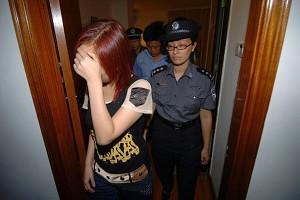In 2005, CAA released its first annual report about the situation of religions in China to expose the mainland Chinese regime’s persecution of house churches. Bob Fu, president of CAA, told the Epoch Times that because of incomplete statistics, the 2007 numbers represents only show a small portion of those who are persecuted by the Chinese regime.
Even with incomplete data, the statistics show a clear trend of increasing persecution against family churches.
According to the CAA report, persecution of house churches were documented in at least 18 provinces and one direct municipality. There were 60 cases in 2007, which is a 30 percent increase since 2006. The number of victims in 2007 increased by over 18 percent, to 788 people. In addition to the record-high number of 17 cases of physical abuse, the number of people arrested rose to 693.
Furthermore, at least 84 foreign missionaries were arrested, interrogated, deported or received other forms of persecution. The severity of persecution against house churches has gone up a dramatic 68.6 percent since 2006.
According to Fu, the Chinese regime executed its persecution of Christians in a few particular ways. He said that first, it focuses on leaders of the house churches, especially those that are considerably sized. Secondly, the persecution of western Christians in China has peaked, making it the largest pursuit of Chinese religious adherents since 1954.
The intensified persecution has sent rippling effects into many countries, including the United States, South Korea, Israel, Singapore, Australia, New Zealand, etc. In addition, the Chinese regime has also increased their suppression of religious publications. For example, Hong Zhou from Xinjiang is still being unlawfully incarcerated for accepting a copy of the Bible.
Liao Tianqi, the editor of the China Information Center in the United States, says that while China’s constitution clearly stipulates that people have freedom of religion, in reality, the regime only permits state-approved religious organizations to exist.
Liao said, “We have data that confirms that religious followers in China have reached several tens of millions. Since many followers do not acknowledge the state-approved church, this is why so-called family or house churches and underground churches have appeared one after another throughout China. The regime is irrational and illogical in suppressing these churches simply because it consider them means of influencing public opinion and challenging its power.”
According to Liao, a law professor from Washington D.C. who is a devout Christian, went to China with this wife to do missionary work. They were harassed and arrested for helping local house churches. He was convicted for “conduction of illegal religious activities” and then deported.
Bob Fu from CAA concluded by pointing out that due to the upcoming 2008 Olympic Games, the Chinese regime may lighten its persecution of house churches on the surface. However, those churches and Christians may face persecution of an even greater magnitude in 2009, and China’s human rights abuses may worsen.

